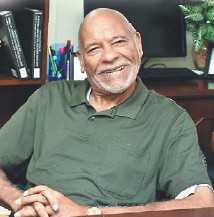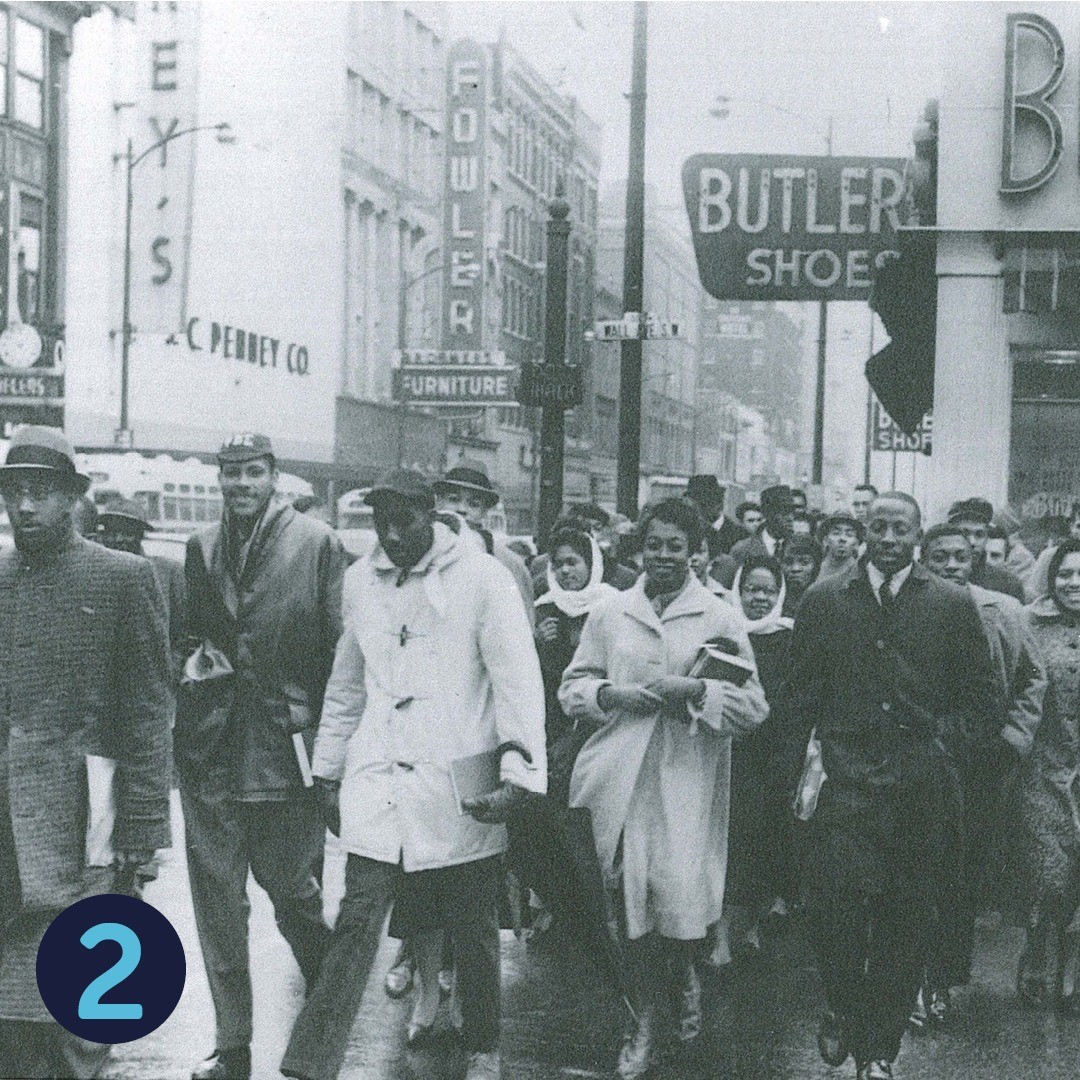(Editor’s Note: Betty Bean wrote this circa 2017, on the occasion of Bob Booker’s CD release.)
The new album in the jukebox at Marie’s Old Town Tavern is a little bit Tony Bennett and a whole lot Frank Sinatra with some Eddie Arnold and Jim Reeves and Ray Charles and the Drifters around the edges. Called “Doing It My Way,” it’s a debut effort for the artist, 81-year-old teacher, civil rights pioneer, mayoral aide, state legislator, historian, DJ, non-profit administrator, newspaper columnist and city council member Bob Booker, who jokes that he’s finally “come out of the shower” with a little urging from his friends.

Bob Booker (file photo)
It started when tavern owner Marie Owens urged him to get up and sing.
“She’d asked Johnny Mills to come in and play old songs, and I’m humming along. She got me up – and I haven’t sat down since.”
With the help of singer Vicky Ward, Booker collected up his favorites and recorded them on a CD called “Doing It My Way.” He’s not selling it, at this point, but he’s sending them to friends across the country and hopes to do a benefit event for the Beck Cultural Center, which he ran for many years.
A product of Knoxville’s segregated school system, Booker has fond memories of his childhood. He graduated from Austin High School in 1953 and spent a year washing dishes in restaurant kitchens, dreaming of a better life. He didn’t have the money for college, so he enlisted in the U.S. Army to get the G.I Bill. He got sent to England and then to France, where he dined in French restaurants, saw the Folies Bergère and made good use of his high school French. He enjoyed army life, but was still set on going back to school, so he went home and enrolled in Knoxville College – and found that not much had changed.
“I had to deal with segregation all over again,” he said. “I’d been set free for three years in Europe, but here, the only decent restaurant I could go to was Sky Chef at McGhee Tyson Airport.”
Meanwhile, the national civil rights movement was gaining momentum. College students organized sit-ins at Greensboro, N.C. lunch counters and Booker, who was student body president at KC, decided it was time to take action. Against the advice of his elders, he led a group of students on a walk-through at downtown lunch counters. Afterward, he got a message from Mayor John Duncan.
“I drove downtown to hear what he had to say – he threatened to put us all in jail. I said, ‘That’s your prerogative.’”
But it didn’t take long for Duncan to come around.
“My impression was that George Dempster and Cas Walker said we didn’t need to have that stuff going on. Dempster said, ‘Coloreds and whites eat together at my plant, so let ’em eat.’”
Duncan took a delegation of business leaders and KC students to New York to talk to the presidents of Woolworth and S.H. Kress.
“We’d decided we could short-circuit all the turmoil by having the lunch counters open to all, but they refused to meet with us.”
So, the demonstrations commenced under Duncan’s watchful eye.
“He deserves credit. He made sure that the right policemen were on duty on Gay Street – he didn’t want them to overreact. Duncan told me himself that the governor of a state in the deep South called him up and said, ‘Mayor, aren’t you head of a southern city… Why are you allowing this?’ Duncan said, ‘Because I don’t want the problems in my city that you’re having in your state.’”
Booker said many white people got involved.
“In many instances, there were more white people on the picket lines than black people. They would turn on their TV sets in the evening and see folks being knocked down in Selma, but they hadn’t thought about the fact that here in Knoxville I couldn’t go to the lunch counter and eat a hamburger and drink a Coke.”
Booker got his degree in 1962 and was teaching high school French in Chattanooga when Duncan offered him a job in city government. In 1966, he became the first African American from Knox County to serve in the General Assembly in Nashville. One of six blacks there, he remembers being “constantly frustrated” but is proud of the role he played in getting 18-year-olds the right to vote and in getting liquor-by-the-drink in Knoxville.
He became Mayor Kyle Testerman’s administrative assistant in 1972, and found that he still ran into “that race thing” occasionally – he was kicked out of a South Knoxville business he’d visited as a representative of the mayor, and wasn’t allowed into an Eastern Star meeting in Karns to which he’d been invited.
“That said to me, ‘Bob Booker, it doesn’t matter what your title is. You’re the same as the guy hanging out on the end of the block.’”
The CD’s title is a salute to Frank Sinatra’s anthem, “My Way,” and it’s not hard to understand why.
“Paul Anka may have written that song for Frank Sinatra, but he wrote it for me, too. I’ve been knocked down, faced roadblocks along the way, but I’ve succeeded in spite of that,” he said.
Betty Bean is a lifelong writer/reporter who is currently retired.

